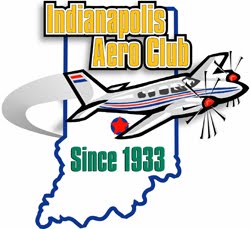Jon's camera:
http://www.facebook.com/album.
Space Camp Cameras:
http://www.facebook.com/album.
http://www.facebook.com/album.
http://www.facebook.com/album.
Jon also delivered a very well prepared thank you speech, and he was kind enough to send us a copy of the speech so we could post it and share it with those unable to attend. We look forward to hearing future success stories from Jon.
Jon's speech:
How many 17 year olds do you know that can say they know what it feels like to be in microgravity?
Can say they’ve overcome their greatest fears to the point of being fearless?
Can say they’ve hand built and lithium hydroxide canister out of spare parts on an international space station?
Have breathed underwater?
Have made the greatest friends of their lives… most not even from this country?
Have their eyes opened up to a point beyond belief- to be open minded and respectful of cultures they never thought of before?
Have built a rocket, a fireproof shield, a couple parachutes, an unbreakable bridge- all with household materials?
Have felt 4 g’s of force on their body?
Have found their passion that they’ve never thought they would ever be passionate about?
How many do you know?
Ok, now how many do you know did it all in 7 days? Well, now you know one.
When I was told about this space camp thing, I had no idea what I was in for. I was never much of a space nerd, watched Star Wars but never was obsessed, and embarrassingly have only seen the new Star Trek movie without watching any of those shows. When I saw the stars, I saw stars. When I saw a space shuttle- I thought that’s cool.
I pulled up to the gate with my dad, and they asked us- “Are you here for international space camp week?”. “No, just regular space camp”. Apparently I was signed up for the International week- which I discovered later to be the greatest week they offer. I was in a group named after the scientist Von Tiessenhausen. 6 of us were from the US. The other 11 were from places like Belgium, Costa Rica, Turkey, Latvia, the Netherlands, New Zealand, Norway, Singapore, and a few others.
Each of them had a completely different global perspective. None of them knew what an oreo was. They taught me how to speak French, how to cuss in Turkish, and how to write in Cyrillic. I taught them what a tater tot was, where Indiana is on a map, and what a squirrel looks like.
But regardless of our backgrounds, we all went through an experience that shaped our minds, our goals, our perspectives in a completely new light. In the day we would go to briefings about how to operate the space shuttle, the history of the space program, and how to survive in space. Each day we had a one hour mission.
My track was the mission specialist track. For the first mission I was on ground control, Eva officer. I would communicate to the shuttle on how to build different structures. Second mission I was the shuttle mission specialist. I was placed on this harness or chair of some sort, and built structures on the microgravity wall. Of course I probably had a little more fun than I was supposed to when I stomped on the floor and flew to the top of the building. The third and fourth mission I was on the
space station, where I conducted experiments like chemical rxns that form flubber. Or program a small robotic arm to take out test tubes pour them and place them back all while solving problems like rapid Oxygen depletion, water purification, and solar flares that were affecting the station.
On the day before graduation, we had our EDM- a 6 hour mission. I started out on the shuttle as we were launched, we docked with the station, and then came home. All the while we had our duties to do like conducting experiments, fix satellites by moving a giant robotic arm that held up a girl all with the control of a joystick, deal with astronauts getting sick by contacting the flight doctor at ground control, and handle all the physical anomolies that went wrong with the shuttle and the station like contacting Houston to help build a LiOH canister to filter out the CO2 levels on the station.
One example was when the entire crew except me and the commander were simulated to be severely sick. During this time the plumbing was out, the power was out, and there was a leak in the cabin. I learned in this moment that the one thing I was very good at was thinking on my toes. We had to diagnose and fix all the medical anomolies, while purging the fuel cells sealing up the leak and programming the plumbing back to normal all in a matter of about half an hour. End result: Mission successful.
When were not in mission prep or in the actual missions you may have found our team at the leadership reaction course, which I’m sure a bunch of pilots know very well what kind of tasks you have to complete in those. Crossing 17 people safely with 2 two by fours from one platform to the next, or through a matrix of cinderblocks, our team ended up with the fastest times compared with the rest of Space Camp. In that area I overcame the greatest of my fears when they presented us with a giant telephone pole (32 feet high) and said climb all the way to the top and jump off. We had pulleys and ropes, but they also said climb only what you’re comfortable then go one more step. I just wanted
to touch the top, but somehow my team and all the support behind me pushed me to go to the very top. The biggest surprise of my life. And I did it. The most terrifying thing I’ve ever done. The zipline the next day was not a problem, because I had become absolutely fearless.
And so in conclusion, July 24 to July 30, 2010 may very well be not only some of the fondest days of my life so far, but perhaps the most important. Because now when I look at the stars I don’t see just stars. I see a place of no fear and of no bounds. A place that I’d like to be. And for that I am forever grateful. Thank you so much with that opportunity. It was truly amazing.
.





